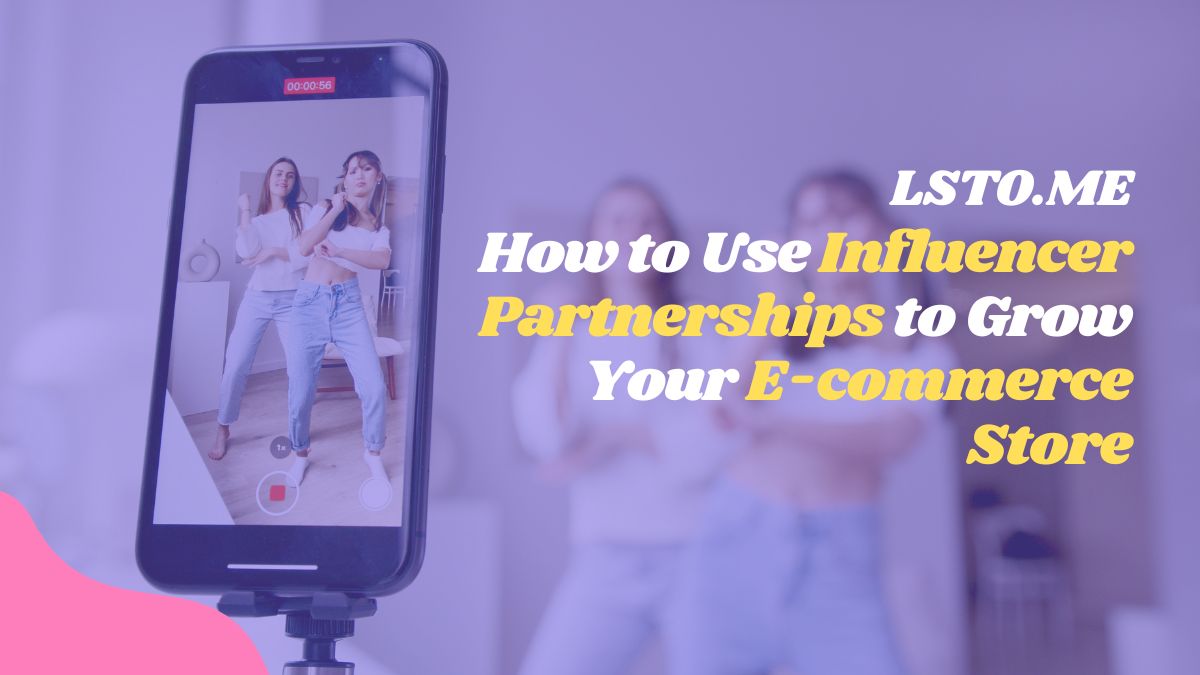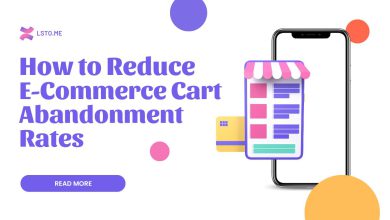
In today’s digital world, e-commerce firms use influencer partnerships to market their products. They are a powerful strategy. The rise of Instagram, YouTube, and TikTok has created a new type of celebrity: influencers. They can shape consumer behavior and trends. Influencers can help e-commerce businesses. They can build brand awareness, drive traffic, and increase sales.
This post will explore using influencer partnerships to grow your e-commerce store. It will provide actionable strategies for success.
1. Understanding Influencer Marketing
Influencer marketing is a partnership between a brand and a social media influencer. The influencer promotes the brand’s products or services to their followers. It uses the influencer’s credibility and reach to promote the e-store’s products.
Influencers typically fall into the following categories:
Mega influencers: Those with over 1 million followers. They are often celebrities with broad reach but can be expensive to partner with.
Macro influencers: With 100,000 to 1 million followers, these influencers are considered experts in their niche and have a large, engaged audience.
Micro influencers: These influencers have 10,000 to 100,000 followers and tend to have a strong connection with their audience, often resulting in higher engagement rates.
Nano influencers: With fewer than 10,000 followers, nano influencers are often very niche and offer the most personalized connection with their followers.
Each category of influencers serves different purposes, and selecting the right one depends on your e-commerce store’s goals, budget, and target audience.
Benefits of Influencer Partnerships:
Increased Brand Awareness: By collaborating with influencers, you can expose your brand to new audiences that may not have been reached through traditional marketing methods.
Trust and Credibility: Influencers have already built trust with their followers, so a recommendation from them can lend credibility to your brand.
Higher Engagement: Influencers create personalized content that resonates with their audience, which often leads to higher engagement rates compared to standard advertising.
Targeted Reach: Influencers often have niche audiences, allowing e-commerce brands to reach specific demographics more effectively.
2. How to Choose the Right Influencers for Your E-commerce Store
Selecting the right influencers is one of the most critical steps in creating a successful partnership. Here’s how to choose influencers that align with your brand:
1. Identify Your Target Audience
Before partnering with influencers, understand who your ideal customers are. Knowing your audience’s demographics, interests, and behaviors will help you select influencers who can effectively reach them.
If you run a fashion e-commerce store for young women, you’ll want to work with influencers. Their followers should be mostly female and interested in fashion trends.
2. Check Influencer Relevance
Relevance is more important than follower count. An influencer with a smaller, engaged niche audience is often more valuable than a mega influencer who lacks relevance to your products.
Look for influencers who align with your brand values and aesthetics. For example, if your e-commerce store sells eco-friendly products, partner with sustainability advocates or green-living influencers. They’re a great fit.
3. Analyze Engagement Rates
Follower count matters. But, engagement rates show how much an audience interacts with an influencer’s content. Engagement metrics like likes, comments, and shares show follower involvement.
Micro and nano influencers have higher engagement than mega ones. Their audiences are more loyal and active.
4. Evaluate Authenticity
Authenticity matters in influencer marketing. Audiences can often tell when an influencer is promoting products they don’t genuinely believe in. Choose influencers who have a history of genuine, transparent endorsements. Authentic influencers will show your product in a relatable way. This builds trust with their audience.
3. Types of Influencer Collaborations for E-commerce Stores
There are several ways you can collaborate with influencers to grow your e-commerce business. Here are a few effective strategies:
1. Sponsored Posts
Sponsored posts are when you pay influencers to feature your products on their social media. The influencer will create content that highlights your product. They will share it with their audience. This method can be effective for brand exposure and generating traffic to your e-commerce store.
For example, if you sell skincare, partner with beauty influencers. They can create tutorial videos or reviews of your products.
2. Product Reviews and Unboxings
Consumers trust the opinions of influencers they follow. Influencers can review or unbox your products. Their audience will get an authentic experience of your offerings. Influencers often showcase how the product is used, its benefits, and why their followers should consider buying it.
3. Affiliate Marketing
Affiliate marketing lets influencers earn a commission for sales from their unique referral links. This method motivates influencers to promote your e-commerce store. It gives them a stake in driving traffic and sales.
Influencers often share affiliate links in their social media bios, stories, or YouTube descriptions. They encourage their audience to buy through those links.
4. Giveaways and Contests
Giveaways and contests are highly effective for boosting engagement and expanding your reach. An influencer-hosted giveaway can create a buzz for your products. It can also inspire their followers to engage with your brand.
For example, a fashion e-commerce store could collaborate with an influencer to give away a free outfit. The influencer can ask their followers to enter the giveaway. They should follow your brand, like the post, and tag friends.
5. Long-Term Partnerships
One-off collaborations can be effective. But, long-term partnerships with influencers can be more valuable. These partnerships deepen the influencer’s connection to your brand. They lead to greater exposure and credibility over time.
For example, you can partner with influencers to be brand ambassadors. They would showcase your products on their social media and advocate for your e-commerce store.
4. Creating an Influencer Campaign Strategy
A clear influencer marketing strategy ensures effective, goal-aligned partnerships for your e-commerce.
1. Set Clear Objectives
Before launching an influencer campaign, define what you hope to achieve. Common objectives include:
Increasing brand awareness
Driving traffic to your e-commerce site
Boosting sales and conversions
Building a social media following
Clear objectives will guide your influencer selection, budget, and overall campaign approach.
2. Define Your Budget
Influencer marketing can be cheap or costly. It depends on the type of influencer. Micro influencers are cheap. Mega influencers are expensive. Set a budget for influencer partnerships. Then, pick influencers who fit it.
Influencers may charge based on their follower count, engagement rates, and the type of content you request (e.g., video, post, story).
3. Track and Measure Results
To gauge the success of your influencer partnerships, track key metrics such as:
Traffic: How many people visit your e-commerce site through the influencer’s posts.
Conversions: How many sales or leads were generated from the campaign.
Engagement: How many likes, comments, and shares the influencer’s content received.
Use tools like Google Analytics and UTM codes to track your campaigns. Also, check platform-specific insights to measure their impact.
5. Best Practices for Influencer Partnerships
1. Allow Creative Freedom
You may have specific goals. But, it’s essential to let influencers have creative freedom when promoting your products. Influencers know their audience. They can create content that resonates with them. Overly prescriptive guidelines can make content feel forced and inauthentic.
2. Be Transparent
Influencers are required by law to disclose sponsored content. Ensure your influencer partners use hashtags like #ad or #sponsored to follow ad rules. Transparency fosters trust between the influencer, their audience, and your brand.
3. Build Relationships, Not Transactions
Successful influencer marketing is built on relationships, not one-off transactions. Long-term partnerships with influencers who align with your brand can boost your e-commerce store. They can lead to more impactful campaigns and steady growth.
Conclusion
Influencer partnerships can transform your e-commerce store. They can help you reach new audiences, build credibility, and boost sales. Choose influencers who align with your brand. Pick the right collaboration method. Track performance. These steps will create impactful campaigns that grow your e-commerce business in 2024 and beyond.
Embrace the power of influencer marketing, and watch your e-commerce store thrive.




